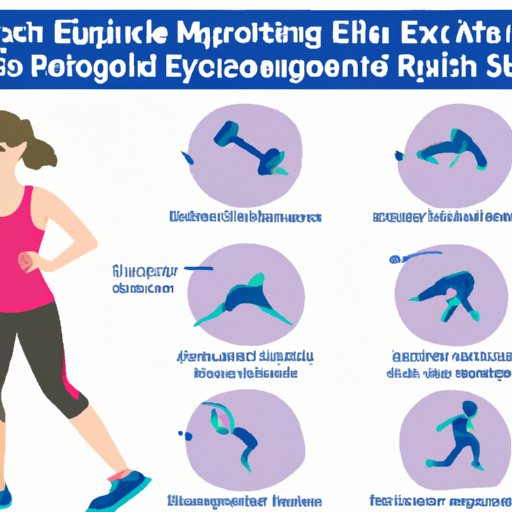
Introduction
Regular exercise is often touted as the key to a healthy lifestyle, but with so much conflicting information out there, it can be difficult to determine what’s true and what’s not. In this article, we’ll explore some of the common misconceptions about exercise and the science-backed benefits of regular activity. From physical health to mental wellness, we’ll cover it all.
The Importance of Regular Exercise: A Look at the Benefits Beyond Physical Health
Regular exercise has numerous benefits beyond just physical health. According to the Centers for Disease Control and Prevention (CDC), physical activity can reduce the risk of chronic diseases, including heart disease, diabetes, and certain cancers. Regular exercise also improves cardiovascular and respiratory health, increases strength, flexibility, and balance, and can lead to better sleep quality.
Studies have shown that regular exercise has a positive impact on mental health as well. For example, a study published in the Journal of Clinical Psychiatry found that exercise can reduce symptoms of anxiety and depression. Another study found that regular exercise can lead to improved cognitive function and decreased risk of dementia.
Debunking Common Exercise Myths: Separating Fact from Fiction
There are many common myths about exercise that can be discouraging for those trying to establish a regular workout routine. Some believe that you have to exercise for long periods of time to see any benefits, or that only intense exercise is effective. Others worry that strength training will make them “bulky.”
Fortunately, these myths are just that – myths. The CDC recommends at least 150 minutes of moderate-intensity aerobic exercise per week, which can be broken up into shorter, 10-minute sessions. Strength training can actually be incredibly beneficial for overall health, and won’t bulk up most individuals unless they follow a specific training program with the goal of building muscle mass.
How Much Exercise is Necessary for a Healthy Lifestyle?
The amount of exercise necessary for a healthy lifestyle depends on a variety of factors, including age, gender, and physical condition. The CDC recommends that adults get at least 150 minutes of moderate-intensity aerobic activity or 75 minutes of vigorous-intensity aerobic activity each week, as well as muscle-strengthening activities at least two days per week. Children and adolescents should get at least one hour of moderate-to-vigorous activity each day.
The good news is that there are many ways to get the recommended amount of exercise. From running and cycling to weightlifting and yoga, there’s something for everyone. It’s also important to listen to your body and gradually increase activity levels to avoid injury.
Making Exercise a Habit: Tips and Tricks for Sticking to Your Routine
One of the biggest barriers to regular exercise is a lack of time or motivation. However, there are many strategies for overcoming these obstacles. Setting achievable goals, creating a support system, and tracking progress can all be helpful for staying on track. It’s also important to find physical activities that you enjoy, so that exercise doesn’t feel like a chore.
Regular Exercise and Mental Health: Exploring the Connection Between Physical Activity and Well-being
The link between exercise and mental health is well-established. In addition to reducing symptoms of anxiety and depression, regular exercise can improve mood, boost self-esteem, and even lead to better sleep quality. Exercise can also be an important part of a mental wellness plan, whether as a stress-management tool or a way to improve overall well-being.
Conclusion
The benefits of regular exercise are clear: reduced risk of chronic diseases, improved physical and mental health, and greater overall well-being. While the specific amount and type of exercise necessary for optimal health may vary depending on individual factors, everyone can benefit from making physical activity a priority. By debunking common exercise myths, exploring the connection between exercise and mental health, and providing tips for sticking to a routine, we hope to inspire readers to prioritize exercise for their health and happiness.





